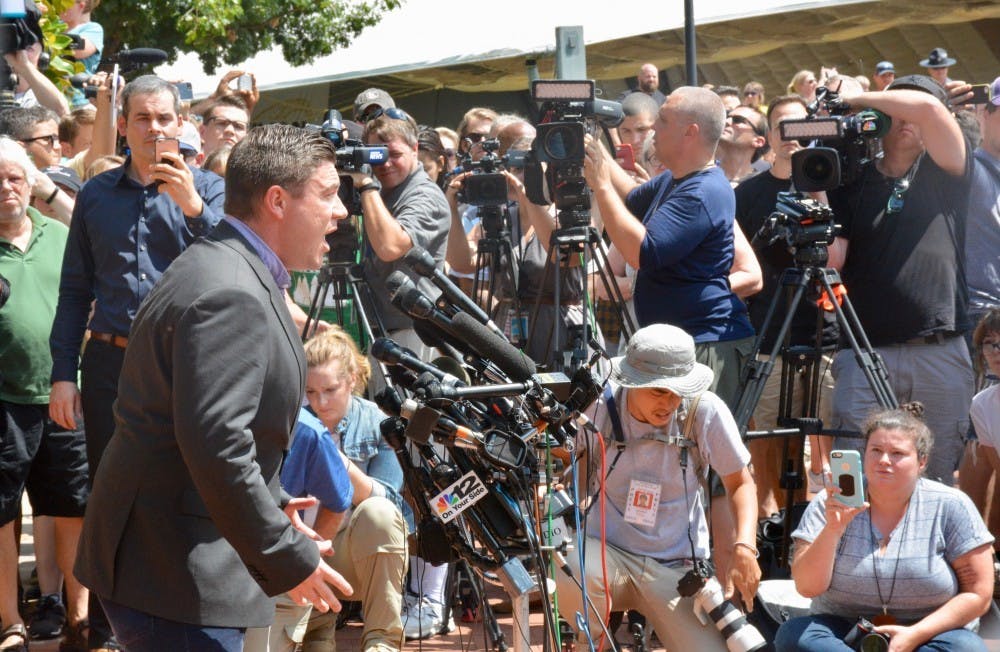Jason Kessler, a white nationalist and organizer of the deadly Unite the Right rally last August, is being sued by Charlottesville City resident James Taylor for assault, defamation and malicious prosecution, among other claims. This is the latest proceeding in Kessler’s legal battle after punching Taylor on the Downtown Mall last January.
Taylor filed documents in the civil suit Tuesday at the Charlottesville Circuit Court. Taylor is seeking compensatory damages — designed to repay Taylor for Kessler’s alleged wrongdoing — as determined by the court and $350,000 in punitive damages, an additional charge meant to discourage such behavior.
The suit also states Kessler violated Virginia’s perjury statute when he claimed to an Albemarle County magistrate in January 2017 he was assaulted by Taylor on the Downtown Mall. Video footage captured by a local business revealed Kessler had, in reality, punched Taylor, after he disagreed with Kessler’s petitioning to recall Charlottesville City Councilor Wes Bellamy.
The lawsuit says Kessler’s criminal complaint is defamatory and constitutes malicious prosecution against Taylor.
“Such statements impugned the honesty, integrity and moral character of Taylor and alleged that he was guilty of crimes for which he could be prosecuted,” the filing reads.
After the footage was examined, Kessler pleaded guilty to a misdemeanor assault charge in April 2017 and was sentenced to 30 days in prison — all of which were suspended — and up to 50 hours of community service.
Robert Tracci, the Commonwealth’s Attorney for Albemarle County, attempted in March to charge Kessler with felonious perjury. After a prosecutorial blunder, the judge dismissed the charge before the impaneled jury could deliberate. Tracci, citing judicial precedents, filed a motion last Wednesday to bring the suit back to trial.
There are several distinctions between Taylor’s civil suit and the Commonwealth’s criminal case against Kessler. Civil cases can seek punitive damages, but only a criminal suit could send a defendant to prison. Civil cases also have a lower burden of proof — a judge or jury must determine the allegations are true “by a preponderance of the evidence,” compared to a criminal case, where the allegation must be proven “beyond a reasonable doubt.”
The case will be heard in the Charlottesville Circuit Court.
Kessler did not respond to request for comment.







